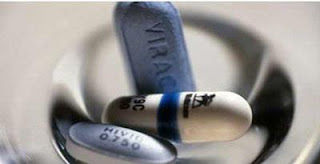As long as we get the minerals from natural sources, rare overdosing. But if the mineral supplementation comes from, let alone consumed in the long term, could have greater risk of overdose. What will happen if the body is an excess of various minerals?
Iron
Consumption of more than 25 mg per day can cause sembeli, headache, tired, zinc and copper deficiency, damage to the pancreas, liver, and heart muscle, nausea, increased risk of infeski, weight, SAG, and cause fatal poisoning in children.
Phosphorus
Consumption of 3,000 milligrams or more per day will make the body absorb calcium is not optimal.
Iodine
Consumption of more than 2 mg of elemental iodine per day can damage the function of the thyroid gland, making dry skin, dry hair, weight loss, vomiting, a rash appears on the skin, mouth pain, headaches, difficulty breathing, excessive menstruation, constipation or diarrhea, swollen saliva glands, and mouth tasted awful.
Calcium
Doses of more than 2,000 mg per day can result in urinary stone in salurah, constipation, abdominal pain, mental problems, impaired absorption of zinc, iron and magnesium, damaging the kidney function, tired, and a pile of calcium in the tissues of the body.
Magnesium
350mg uptake per day or more will endanger health, could even be fatal.
Potassium
An overdose is rare. However, if the condition of the kidneys is not good, could have been going on an excess of potassium, which causes muscle weakness, tingling in the feet and hands.
Sodium
Consumption of more than 2,300 mg per day can cause muscle cramps, berkunang-kunang eyes, feeling very thirsty, bloating, high blood pressure, osteoporosis, electrolyte disorders of the body that can cause disorders of innervation.
Zinc
Zinc intake more than 75mg per day can weaken immune function, nausea, vomiting, heaving cholesterol levels, anemia, abdominal pain, abdominal haemorrhage, impaired immune responses, premature birth, even the baby died at birth.









